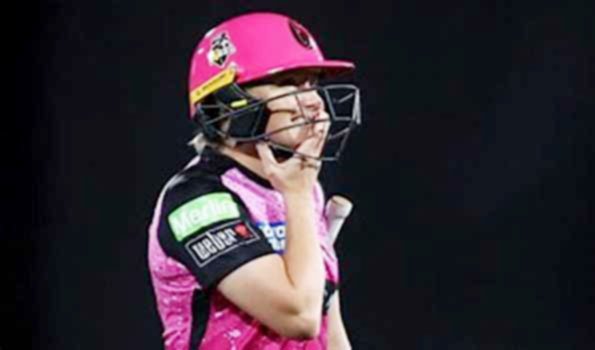New Delhi, Aug 9 (UNI) “Bail is the rule and jail an exception,” the Supreme Court said on Friday while granting bail to former Delhi Deputy Chief Minister and Aam Aadmi Party leader Manish Sisodia in cases related to the now-scrapped Delhi excise policy under which he spent 17 months in jail waiting for the trial to begin.
The judgment also set a new, relaxed yardstick for interpretation of the harsh bail provisions under Section 45 of the Prevention of Money Laundering Act, 2002, in cases of prolonged incarceration.
“Bail can’t be rejected as a punishment,” said a bench of Justice B R Gavai and Justice K V Viswanathan upholding Sisodia’s “right to a speedy trial”, adding, “It’s high time that trial courts and high courts realize that bail is the rule and jail an exception.”
Accepting Sisodia’s bail plea, the bench said the procedure should not become the punishment and that the right to bail should not suffer due to delay in trial.
Giving hope to other incarcerated PMLA accused like Sisodia, the top court said the rigours of Section 45 of PMLA can be relaxed to account for prolonged incarceration.
According to Section 45 of the PMLA, bail can be granted to an accused in a money laundering case only if twin conditions are satisfied – there should be prima facie satisfaction that the accused has not committed the offence and that he is not likely to commit any offence while on bail.
The court barred Sisodia from leaving the country and set certain conditions before allowing him to step out of prison after 17 months.
The bench said that the bail shall be granted to Sisodia on depositing a bail bond of Rs 10 lakh and a surety of the like amount.
The court directed Sisodia to surrender his passport and report to the Investigating officer (IO) on every Monday and not attempt to influence witnesses.
Taking note of the denial of bail to Sisodia over the past few months, Justice Gavai said, “A citizen cannot be made to run from pillar to post for bail. He cannot again start from square one, the trial court, and climb up the ladder till the Supreme Court for bail. Grant of bail is not a snakes and ladders game.”
The Supreme Court noted that the AAP leader has suffered incarceration of 17 months and that the trial has not yet commenced.
The Court noted that Sisodia had been denied the right to a speedy trial and the trial court and the High Court ought to have given due weightage to this.
Dismissing the contentions of the ED and CBI that the delay in the trial can be attributed to Sisodia, Justice Gavai said, “When we specifically asked the ASG to show any order where the trial court found any application to be frivolous, not one was shown. We find that the finding of delay by the appellant is not supported by the record.”
The Court said that relegating the former Deputy CM to the trial court for relief would be a “travesty of justice”.
“A citizen cannot be made to run from pillar to post. June 4 order recorded that it did not go into merits…Procedures cannot be made a mistress of justice,” Justice Gavai said while dismissing the central agencies’ preliminary objections to the bail plea.
Justice Gavai noted that the Supreme Court in its order on June 4 had recorded an undertaking from Solicitor General Tushar Mehta, who appeared for both the Enforcement Directorate (ED) and the Central Bureau of Investigation (CBI), that the final chargesheet/prosecution complaint would be filed in the trial court on or before July 3.
At the start of the day’s proceeding, the bench asked, “How the central agencies justify the delay in the trial?”
Appearing for Sisodia, Senior Advocate Abhishek Manu Singhvi had approached the Supreme Court asserting that the trial had not begun despite assurances from the probe agencies in October 2023 that it would be concluded within six to eight months.
Additional Solicitor General (ASG) S V Raju appearing on behalf of the ED and CBI said the delay came from Sisodia’s side who had sought one document after the other in court.
”Our trial would have commenced and these documents were unwarranted but just because of these applications. Delay is completely attributable to them and not to the agency. Speedy trials cannot be fitted in a straight jacket formula. It is case-by-case basis and they do not want this to be heard on merits. So the best option for them is to delay it,” Raju apprised the Supreme Court.
Justice Viswanathan then said that had the accused been on bail, he would have tried to delay the trial. But that was not the case here.
”Delay may happen on the accused side if they are on bail,” Justice Viswanathan reasoned.
Raju said the accused could also deliberately delay the trial and use the situation to seek bail and added that among the 400-odd witnesses, the ED could have the important ones to testify first.
The Supreme Court noted that the ED has to establish an unbroken chain of evidence linking Sisodia with the liquor lobby in the excise scam case.
“We know it is difficult to establish the chain as everything is done undercover… but that is where your competence lies,” the bench said.
The court observed that except a statement made by businessman Dinesh Arora, an accused-turned-approver in the case, there was no proof against Sisodia.
Sisodia was arrested by the ED and the CBI on February 26, 2023, and March 9, 2023, respectively.











